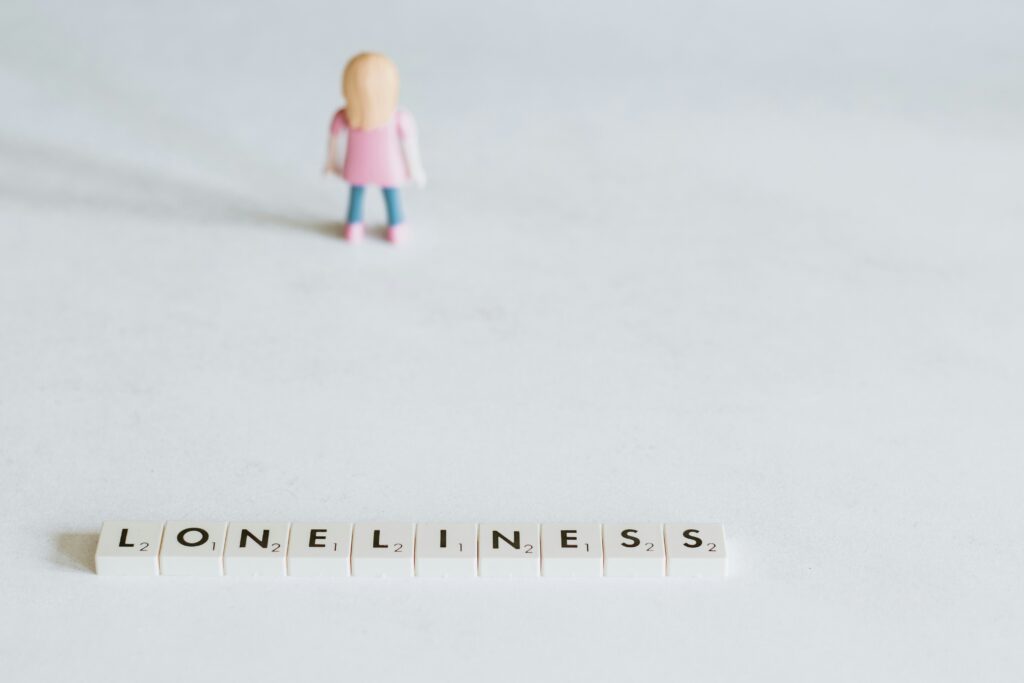
How Volunteers and Community Build Better Mental Health
For this year’s Mental Health Awareness Week, which focuses on the theme of ‘community’ we spoke to Thomas, Peer Support and Volunteer Coordinator at Waverley Care about how volunteers and community support can make a real difference to people’s mental health that are living with or affected by blood-borne viruses (BBVs).
At Waverley Care, we see every day how vital connection, belonging, and community are to mental wellbeing. Through our Living Well groups, we do more than provide peer support—we create safe, inclusive spaces where people build relationships, share experiences, and support one another in meaningful ways.
Mental Health and Blood Borne Viruses: The Whole Picture
At Waverley Care, we believe that to look after your physical health, we must also focus on your mental health. Understanding the integral link between the two allows us to have a person-centred approach in the work we do.
For people living with, or affected by, HIV or Hepatitis C, mental health is often impacted by complex challenges such as trauma, addiction, stigma, isolation, and poverty. As Thomas explains, “When supporting people living with a blood-borne virus, we place the utmost importance on their mental health.”
These challenges can make it harder for people to access care or remain engaged with ongoing support.

When issues like stigma, trauma or poverty go unaddressed, it becomes difficult for people to engage with support or treatment.
That’s why at Waverley Care we take a trauma-informed approach creating a safe environment and building trust to empower individual to use their autonomy to re-engage or continue to do so, with both their physical and mental health.
Stigma, Misconceptions, and Social Isolation
Consistently, we find that stigma remains one of the greatest barriers to mental wellbeing for people living with HIV and Hepatitis C, as being faced with the roadblocks that stigma brings.
Whether through self-stigmatisation, judgment from the outside world, or a lack of societal acceptance, stigma continues to exacerbate feelings of isolation.
As Thomas explains, “Stigma and discrimination can lead to feelings of loneliness and shame, whilst poverty may act as a barrier to consistent support.” Misconceptions, which can cause harmful targeting of certain groups at risk – continuing to isolate an individual.
The stigma not only isolates people but also discourages open conversations and testing.
At Waverley Care, we believe that educating outdated conceptions and prejudices breaks down barriers and replaces the fear with understanding and connection. Thomas says, “We need to move away from outdated stereotypes and recognise that blood-borne viruses do not discriminate”. By tackling misinformation, we can move towards an inclusive and supportive environment for those impacted.

The Magic of Peer and Community Support
We’ve seen first-hand the positive and incomparable impact human connection can have on the people we help. Peer support can transform people’s lives, particularly those living with blood-borne viruses.
Our living well group offers more than just a space to socialise, it creates a vital space to share lived experience, practice understanding and share empathy with others. It gives those who attend a space to feel seen and heard without fear of judgement and be supported by those who may relate to struggles and wins in their own journey.
Thomas describes the group as a space for “people who use/have used drugs and living with HIV produces a welcoming space where members not only find peer support but also share community experiences.” For many, simply being around other people who have walked a similar path can bring a lot of relief.
Support from others with lived experience is incredibly important. It creates a sense of belonging and reduces feelings of stigma and fear.
These vital and unparalleled connections can be transformative, with no specific task but simply enjoying each other’s company, they are sometimes unaware of the isolation and barriers they are breaking by coming together.
The Tools to Succeed
Engaging in meaningful activities and learning practical coping strategies can have a powerful impact on mental health, particularly for people living with or affected by HIV and Hepatitis C.
Taking part in group outings like museum trips, health walks, games and barbecues during sunny days, offers more than just enjoyment; they provide connection, routine and a sense of stability. It’s a chance for those who attend to create friendships with people who have similar experiences whilst also engaging in activities centred around reducing stress and anxiety.
Alongside these activities, self-management education sessions play a crucial role in building confidence and resilience. They focus on topics surrounding mental health, disclosing your status, overcoming stigma and how to combat loneliness and isolation.
Thomas notes, “These sessions equip members with the tools to navigate life’s challenges with confidence, by addressing mental and emotional wellbeing, participants learn coping mechanisms that will hopefully improve their daily lives.”
Being part of this group has been truly heart-warming, especially watching real friendships blossom.
This sense of community, rooted in shared experience and mutual understanding, helps reduce isolation, boost emotional wellbeing, and foster lasting peer support that continues outside of group sessions.

Changing How We Talk About Blood-Borne Viruses to Tackle Stigma and Support Mental Health.
Outdated assumptions and messaging based on fear continue to isolate people and discourage testing. As Thomas highlights, “One of the biggest misconceptions is that only marginalised groups are at risk, when in reality, anyone can be affected.” Today, thanks to modern treatment, “people should know that living with a blood-borne virus, such as HIV, in this day and age is vastly different from the past.” With effective care, individuals can live long, healthy lives, and when virally suppressed, HIV cannot be passed on through sex.
As Thomas powerfully puts it, “It’s time to shift the narrative from fear and misunderstanding to awareness and support.” Encouraging open conversation and regular testing isn’t just good practice, it’s essential for public health and for creating a society where everyone feels safe, informed on their own health and respected.
The Postcode Lottery of Mental Health Support

Access to the level of mental health support you receive should not depend on where someone lives, and yet geography continues to shape the quality and availability of care.
In Scotland, many services remain heavily concentrated in urban areas but spread thin in more rural communities – making it far more difficult for those in rural or remote areas to access the help they need.
Access to mental health support should not be limited by geography.
Bridging this gap calls for a greater investment in digital and remote services, alongside efforts to raise awareness of what’s already available. Everyone deserves unequivocal access to inclusive mental health care that is right for them, no matter their postcode.
Join Waverley Care in Creating a Healthier, Fairer Scotland for Those Facing Mental Health Challenges
Whether it’s through volunteering your time, raising awareness, or supporting our work in other ways, every action makes a difference to the work we do. As Thomas says, “Supporting our work at Waverley Care is a powerful way to help make meaningful change” and “together, we can build stronger, healthier communities, where mental health care is accessible to all.”
Your support can help us ensure everyone across Scotland, no matter where they live, has access to the care they deserve. Together, we can build stronger, healthier communities where mental health care is accessible to all.
Contact Us
This Mental Health Awareness Week, we invite you to be part of that journey. You can get involved by contacting Thomas directly at thomas.petersen@waverleycare.org, or by calling on 07719043734.
